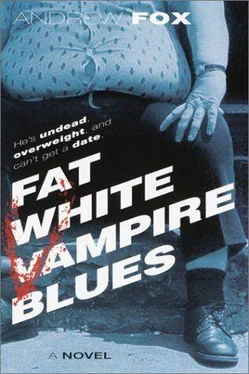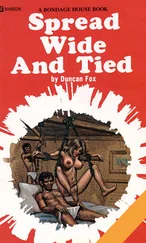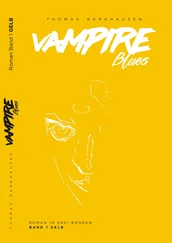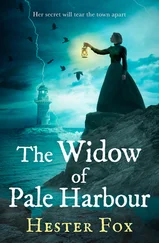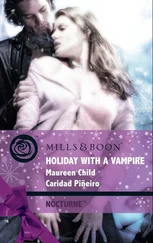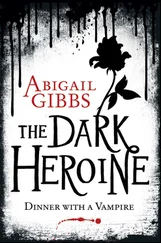How many weeks had he haunted Bywater’s movie houses, ball fields, and drugstore soda counters, searching for exactly the right kid? And out of hundreds of possible candidates, what had made him pick Rory “Doodlebug” Richelieu?
Maybe it’d been because the kid had always been by himself, hanging out at the soda counter next to the neighborhood newsstand. A kid without any friends would have fewer people missing him and looking for him. Maybe it was because Rory had seemed to like the same things Jules liked. The kid’d always had his nose in a mystery pulp or comic book; either that or he was sketching outlandishly costumed adventure characters in the margins of his Holy Cross School writing pad. Heck, maybe Jules picked him because Rory hadn’t instinctively shied away from the vampire the way so many of the other kids did.
So Jules had followed Rory outside one November night in 1942, when the evening air was still unseasonably warm and smelled of the river, and Press Street echoed with the Klaxons of freighters entering the Industrial Canal. And there, in front of the darkened newsstand, he’d asked the boy:
“Hey kid, do you wanna be stronger than ten grown men put together?
“You wanna be able to change into a bat whenever you damn well feel like it?
“You wanna send all the Ratzis you can get your hands on to hell?”
He’d saved the best for last “You wanna be around forever?”
And the kid had said yes. Yes to all of it, without a second’s hesitation.
Doodlebug had made a good little vampire. He’d hardly missed sunlight at all, or his foster parents, or the nuns at Holy Cross School. He’d been a damn good sidekick, too-at least for a while. Always good company, quick with a funny quip, a helpful suggestion, or a belly-warming cup of coffee. Having him around had made the long nights of patrolling the waterfront factories fun.
The costume and secret identity thing had been icing on the cake. Doodlebug had loved dressing up. Loved it way,way too much, as it turned out. And that had been, ultimately, what blew their partnership apart. Blew it apart far more decisively than any Nazi grenade ever could.
The sound of the gramophone’s needle scraping against the record’s hub interrupted Jules’s remembrances. The grandfather clock by the Victrola indicated it was a quarter past eleven. Time to get a move on.
Before getting into his car, he paused a few seconds, as he usually did, to admire his house, his street, and the levee, all glowing peacefully in the moonlight. Despite all its changes over the years, the neighborhood couldn’t be better suited for him if he’d designed it himself. Jules smiled. He couldn’t imagine ever living anywhere else.
The tiny front and back parking lots of the Trolley Stop Cafй were packed with taxis and police cruisers-mammoth Crown Victorias, Caprices, and Roadmasters that sprawled across the universally ignored yellow divider lines onto the sidewalks. Jules circled the block, then found an open spot on St. Charles Avenue and pulled in. The all-night breakfast joint was on a stretch of the avenue that had seen its ups and downs. Swank when first developed, the neighborhood had managed to stay upscale through the Depression and two World Wars, but then had gone precipitously downhill in the 1970s. Now, however, it looked to be coming back up.Stick around long enough, Jules thought to himself,and you see everything come back round again.
The Trolley Stop itself was a converted gas station, made to vaguely resemble a St. Charles streetcar by an application of kelly-green paint and the addition of wooden cutouts of a Victorian streetcar conductor and riders, dressed in their Sunday going-to-church finery. Jules preferred the less touristy atmosphere at the St. Charles Tavern, another twenty-four-hour dive down the street. But when the overwhelming majority of cops and taxi drivers had transferred their allegiance to the Trolley Stop right after the new place had opened, Jules, grumbling, had felt he’d no other choice but to go along with his pals. Besides, he had to admit that the coffeewas fresher at the Trolley Stop.
Before stepping inside, Jules checked the parking lot for Erato’s cab. Sure enough, there it was-a Lincoln Town Car painted the unmistakable green, gold, and purple livery of the Napoleon Taxi Co. Erato hadn’t been his best pal for that long-only the past fifteen years or so-but Jules felt closer to him than any human friend he’d ever had. It was kind of weird, given Jules’s recent circumstances, that his best human pal ever, and the man he was now seeking out for advice, happened to be a black man. The more he thought about it, the more the injustice of Malice X’s threats rankled. Of all the white vampires out there, why pick onhim, Jules Duchon? Jules had always been decent to black folks, even back during the old Jim Crow days. Heck, nearly all the musicians on his most-admired list were black guys from New Orleans.
He pushed his musings aside and entered the restaurant. The cabdrivers had staked out their usual territory: they were lined up on the closely spaced stools fronting a long wooden bar adjacent to the cash register and the men’s room, sipping from cups of dark, aromatic coffee. Some of them scraped the last few sticky granules of grits off the bottoms of greasy plates, while others snatched quick glances at the counter lady’s heart-shaped ass in the full-length mirror behind the liquor bottles. That was one thing Julesreally disliked about the Trolley Stop-having to deal with that damn mirror. Luckily for him, at each end of the bar was a stool that faced oak paneling instead of silvered glass. Unluckily for him, both stools were currently occupied. However, one of the corner occupants was Erato himself.
John Xavier Erato was a head shorter than Jules, but just as wide across the shoulders. Thirty years ago he’d been a star varsity wrestler at Alcee Fortier High School. He’d won a record number of matches, despite a lazy eye that would concentrate more on the girls in the bleachers than the task at hand. But twenty-five years of sitting in a cab ten hours a night had grafted a generous middle-aged spread onto his once taut abdomen. The one-eighth Natchez Indian ancestry he always boasted of was evident in his skin’s reddish brown tint and the slightly Asiatic cast of his eyes. His shiny scalp was crowned by a still-credible thicket of dyed and processed curls.
Jules sidled up behind him. Then, in his best George Raft whisper, he hissed into Erato’s ear, “Hey, pal, I hope the only reason your ass is on that seat is to warm it up forme.”
Erato half choked on a mouthful of red beans, then recovered enough to glance over his right shoulder, wiping bean flecks from his chin with his napkin. The anger in his eyes faded when he saw who it was.
“Hey, hey, look what just crawled in! Jules Duch-bag, king of the gypsy cabdrivers hisself!” Erato tossed his napkin onto his plate and turned to the man sitting next to him, a wispy-haired, jowly driver dressed in a shapeless plaid jacket. “Hey, Conrad, push on over, will you? My man Duch-bag needs an end seat, or else he stands around and makes your skin crawl ‘til you get your ass off his fuckin’ stool.”
The other driver’s face puckered into a scowl, but he pushed his plate and coffee cup to his left and moved over. Erato then slid gracefully from the end stool onto the stool Conrad had vacated. He glanced to his right as Jules maneuvered into the space between the end stool and the bar and awkwardly settled his rump onto the round, red vinyl cushion.
“Man, you hurtin‘ my eyes again!” Erato pulled a pair of sunglasses out of his shirt pocket with a flourish. “You get any whiter, you gonna make me go blind, man!”
Jules smoothed the edges of his place mat and straightened the utensils the counter lady set down in front of him. “Yeah, and if you get any blacker, Community Coffee’s gonna grind your ass up and stick it in one a their cans.”
Читать дальше
